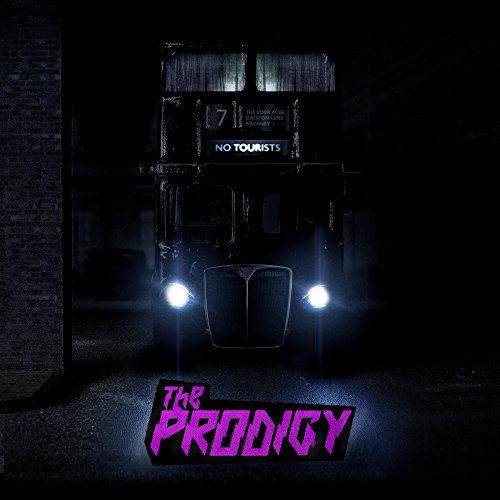
The Prodigy
No Tourists
Release Date: Nov 2, 2018
Genre(s): Electronic, Electronica, Techno, Club/Dance, Funky Breaks, Big Beat, Rave
Record label: BMG
Music Critic Score
How the Music Critic Score works
Buy No Tourists from Amazon
Album Review: No Tourists by The Prodigy
Satisfactory, Based on 8 Critics
Based on rating 7/10
It's hard to believe the Prodigy will be celebrating a 30th anniversary soon, and there's something comforting in the knowledge that they've continued to soldier on, releasing albums of reliably grimy and confrontational big beat electronic every four or five years. It's truly a genre of yore at this point, and the stylistic conviction of Liam Howlett and crew is worthy of respect. While Keith Flint and vocal partner Maxim aren't as prominent as they sometimes are on this outing, the bludgeoning beats and aggressive synths remain, with ….
Based on rating 6.2/10
It's tempting to call the Prodigy the Rolling Stones of rave. Both bands formed in the unfashionable home counties around London. Both took Black American music, sugared it up, and flogged it back to the States. And both stopped innovating 15 years into their careers, in favor of repackaging classic sounds into stadium-friendly bundles.
Based on rating 3/5
The Prodigy are monsters live: anyone who's witnessed them in their natural habitat can attest to this. One record, however, it's a slightly different story. Once vanguards of dance, their last few albums have felt like the Essex outfit have been treading water. 'No Tourists' is different. The ….
Based on rating 6/10
Three years after the release of their fifth straight U.K. chart-topping album, original electronic bad boys the Prodigy returned with their seventh collection of high-octane rave-punk anthems, No Tourists. Much like preceding albums The Day Is My Enemy and Invaders Must Die, No Tourists leaves little space to breathe, delivering a short and sweet set of blows to the head that was designed specifically for performing live.
Based on rating 2
As British sitcom Peep Show lives on to entertain a new generation of teenagers, it's worth recalling Jeremy and Super Hans' love of big beat - did Keith Flint have many better hooks than "this is outrageous / this is contagious"? But the references don't quite land these days. The electronic sub-genre is so old that calling it dated is itself dated. Thus The Prodigy find themselves, on their seventh album, still coasting from the success of 2009's Invaders Must Die and trying to mine the same old territory for new gold.
Opinion: Excellent
T he title may sound a bit Brexity, but, says bandleader Liam Howlett, the Prodigy's seventh album is about never following the crowd. Accordingly, the Essex trio's words and music are blunt, urgent and are as unconcerned with compromise as ever; of course there are songs called Timebomb Zone and Fight Fire With Fire. After 30 years this should feel dated, tired, especially given Howlett's regression to the mean of drums and bass overlaid with echoing, aircraft-hangar synths and double-speed samples.
Opinion: Fairly Good
Did The Prodigy change, or was it us? Their '90s hits captured lightning in a bottle and defined an era but ever since the turn of the century, their output hasn't felt quite as vital, even though it's seemed - on the surface at least - that nothing's changed. Maybe they're victims of their own success. There was no-one quite like them at their peak, but given that Prodigy-aping acts like Nero and Skrillex seem a little passé, and their winning formula was bastardised into generic brostep, it's not a great time for Liam Howlett et al.
Opinion: Fairly Good
F ew bands captured the early-1990s zeitgeist as effectively as the Prodigy. Outdoor raves - notably the huge Castlemorton Common festival in 1992 - were seen as a such a threat to public order that John Major's Conservative government brought in the Criminal Justice and Public Order Act in 1994, to outlaw gatherings of people dancing to "repetitive beats". Although this could technically mean anything from Orbital to Morris dancers, Prodigy tracks such as Their Law soundtracked the music community's fightback.
'No Tourists'
is available now

